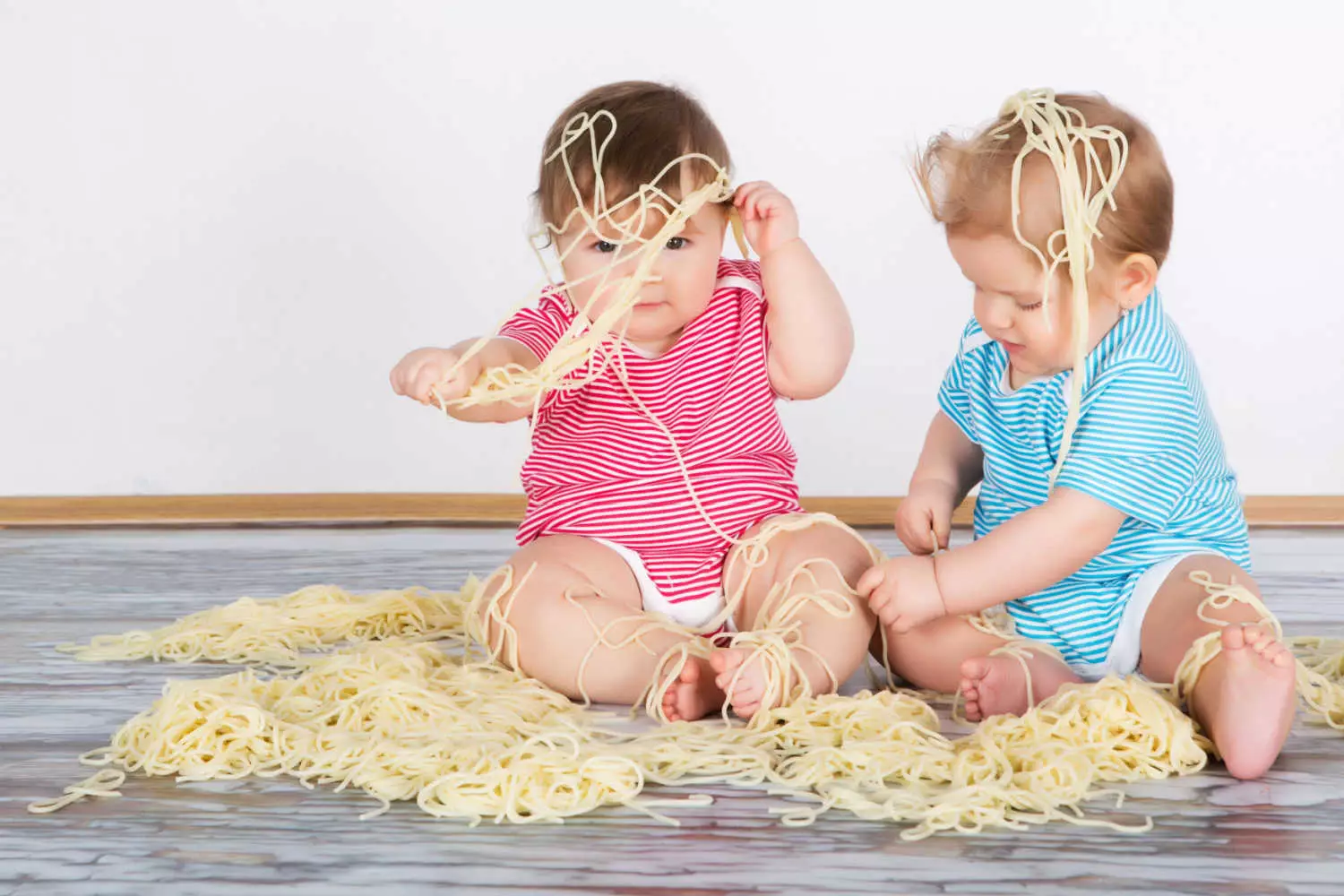
Ragi For Babies – When to Introduce, Benefits and Precautions
6 min readWritten by Editorial Team


Babies need a lot of nutrition as they turn six months old. Their digestive system is also getting ready to handle new foods. This is why doctors recommend introducing solids to babies around this time. Finding the right foods that are easily assimilated by babies and give the necessary nutrients can be quite a task. Ragi for babies is the perfect combination. Considered a major class of Indian millet, it is highly nutritious and has proven to be more effective than wheat and other cereals or pulses.
Many pediatricians recommend porridge made from sprouted ragi as one of the first weaning foods as the baby is transitioning from breastmilk to solids. This powerhouse of nutrition can be easily digested by the still maturing stomachs and provides everything a baby needs as it reaches new milestones every day and goes through new developmental phases. Ragi is perfect for babies with wheat and gluten allergies too.
In This Article
- Is Ragi Safe For Babies?
- When Can You Introduce Ragi to Your Baby?
- Nutritional Value of Ragi
- Amazing Top 5 Health Benefits of Ragi For Babies
- Precautions to Take While Introducing Ragi to Babies
- Are There Any Side Effects of Ragi For Babies?
- Top 2 Tasty and Healthy Ragi Recipes For Babies
- FAQ’s
Is Ragi Safe For Babies?
Ragi is extremely safe for babies and rarely causes any allergies. It is one of the healthiest alternatives to wheat. Thanks to low gluten content, high protein and fiber, and several other vitamins and minerals, it has become one of the most preferred choices of many parents. Ragi is safe for babies, and you can introduce it during the 3rd month of age.
Whenever parents have to introduce a new food to their babies, their main concern is safety. You cannot feed any food to babies, especially if they are sensitive or allergic to something. Due to its minimal ability to cause any allergies, ragi can safely be among your baby’s first weaning foods.
When Can You Introduce Ragi to Your Baby?
Ragi can be safely introduced as your baby’s first weaning food at around six months of age or whenever you plan to transition them to solids. Sprouted ragi powder is the safest way to introduce this nutritious millet to your baby. The sprouting process breaks down the hard-to-digest proteins and nutrients and converts them into an easily digestible form. As a result, the nutrients get readily available to be absorbed into your baby’s body.
Nutritional Value of Ragi
The nutritional value of ragi is explained in the below section, with measurements presented per 100 grams of the millet.
| Nutrients | Value |
| Fiber | 11.18 g |
| Fat | 1.92 g |
| Carbohydrate | 66.82 g |
| Protein | 7.16 g |
| Folate or Vitamin B9 | 34.66 mcg |
| Vitamin B1 | 0.37 mg |
| Vitamin B6 | 0.05 mg |
| Iron | 4.62 mg |
| Calcium | 364 mg |
| Vitamin K | 0.9 mcg |
| Magnesium | 146 mg |
| Phosphorus | 210 mg |
| Manganese | 3.19 mg |
| Potassium | 443 mg |
| Zinc | 2.53 mg |
Amazing Top 5 Health Benefits of Ragi For Babies

Ragi is excellent for babies. But it is also necessary to understand how this millet is beneficial to your little munchkin. Here are the top five benefits of ragi.
1. Enhances Bone and Tooth Strength
Infants need a proper supply of dietary calcium and phosphorus to ensure bone and teeth strength as they grow. Although mother’s milk and formulas are loaded with these minerals, you need to include other food items that offer a huge amount. This is why including ragi will help you ensure proper baby growth. This Indian millet adds more calcium and phosphorus to strengthen bones and teeth in infants.
2. Helps in Digestion and Bowel Movement
Ragi is a great source of fiber. It is one of the crucial elements that should be included in your baby’s diet without fail. Indigestion and constipation are the two most common problems you can see in babies. So, giving ragi will help in better digestion and reduce bloating and gas. Apart from this, this food ingredient also helps smooth bowel movement, easing constipation.
3. Excellent Remedy For Anemia
Anemia is a condition where the hemoglobin concentration falls below normal. As a result, oxygen is not transported properly. Ragi is rich in iron content and giving this millet to your baby regularly will keep the hemoglobin at optimal levels and vastly reduce the chance of developing anemia.
4. Combats Malnutrition in Babies
When infants do not receive appropriate nutrition, they suffer from deficiency diseases. So, to prevent any such medical condition, it is better to include nutrient-rich food in their diet. For example, you can add ragi to cover the deficiency of proteins and carbohydrates. Similarly, its rich Vitamin B concentration will reduce the chances of suffering from vitamin deficiency in your babies. So, ragi is an excellent option to combat malnutrition.
5. Boosts Immune System
Lastly, ragi also helps boost the immune system and keeps your baby safe from infections. At an early age, the immune system remains weak, so you must include ragi. It is loaded with multiple vitamins and minerals for strengthening immunity and ensuring your baby doesn’t get affected by infections.
[Read : How to Increase Immunity in Babies?]
Precautions to Take While Introducing Ragi to Babies

Here are a few precautions you must take when giving ragi to your babies
- Always opt for organic ragi millets free from pesticides and chemicals from trusted sources.
- As far as possible try to give your baby sprouted ragi flour. Some organic brands do sell sprouted flour. Alternatively, you can make it at home too.
- The ragi must be cooked well and lump-free to make it easy for babies to eat and digest.
- Use the three-day rule to rule out any possibilities of allergies.
[Read : The 3-Day Wait Rule For Babies To Introduce Solids]
Are There Any Side Effects of Ragi For Babies?
Ragi doesn’t have any known side effects. In fact, it is an excellent alternative for babies suffering from gluten allergies and celiac disease. However, if you observe your baby feeling uneasy or having any stomach disturbances such as indigestion or allergy symptoms such as rashes or itching after having ragi, you must stop giving this millet to your baby and see the pediatrician.
Top 2 Tasty and Healthy Ragi Recipes For Babies

Ragi can be slightly bitter in taste. Cooking it the right way can help get rid of this bitterness and make it palatable for your baby. Here are a few ragi recipes for your little one.
1. Ragi Porridge
Mix a teaspoon of ragi in warm water. Mix well while ensuring that no lumps form. Cook this mixture over low heat till the raw smell disappears and the porridge turns shiny. Cool and serve.
2. Ragi Apple Kheer
Process chopped apple pieces into a blender. You can steam before bleeding if you wish. Prepare ragi porridge in the regular method. Once the porridge is cooked well into a shining color and smooth consistency, add the apple puree, mix well and cook before serving.
Ragi for babies is an excellent food to introduce when they are transitioning from breast milk to solids. It is easy to digest and provides the best nutrients that your growing baby needs. Sprouted ragi flour is ideal to introduce to your little one at this time.
[Read : Gluten Allergy In Toddler]
FAQ’s
1. Can Ragi be Given to Babies Daily?
Yes, ragi is chock-a-block with nutrients and is ideal to be given every day. Just remember to start with a teaspoon of porridge when starting for the first time and exercise moderation.
2. Does Ragi Help With Weight Gain in Babies?
Yes, ragi is high in fiber and carbohydrates, both of which help babies gain healthy weight. The other nutrients contribute to your baby staying active and healthy.
3. Does Ragi Cause Constipation in Babies?
No. In fact, ragi mitigates the discomfort from constipation and provides relief from stomach-related issues.
Read Also: Suji(Semolina) For Babies – When to Introduce, Benefits and Precautions

Editorial Team,
With a rich experience in pregnancy and parenting, our team of experts create insightful, well-curated, and easy-to-read content for our to-be-parents and parents at all stages of parenting.Read more.
Responses (0)
Want curated content sharply tailored for your exact stage of parenting?
Related articles

Positive Coombs Test in Newborns – What it is, When it is Done and How to Take Care

Top 9 Best Black and White Books For Newborn Babies

Nail Polish For Babies – Is It Safe?

Tips for Dressing Your Baby as Lord Krishna

Rattles For Babies – How it Helps in Baby’s Development

Spaghetti Play For Babies – How it Helps in Baby’s Development
Sponsored content
Discover great local businesses around you for your kids.
Get regular updates, great recommendations and other right stuff at the right time.





